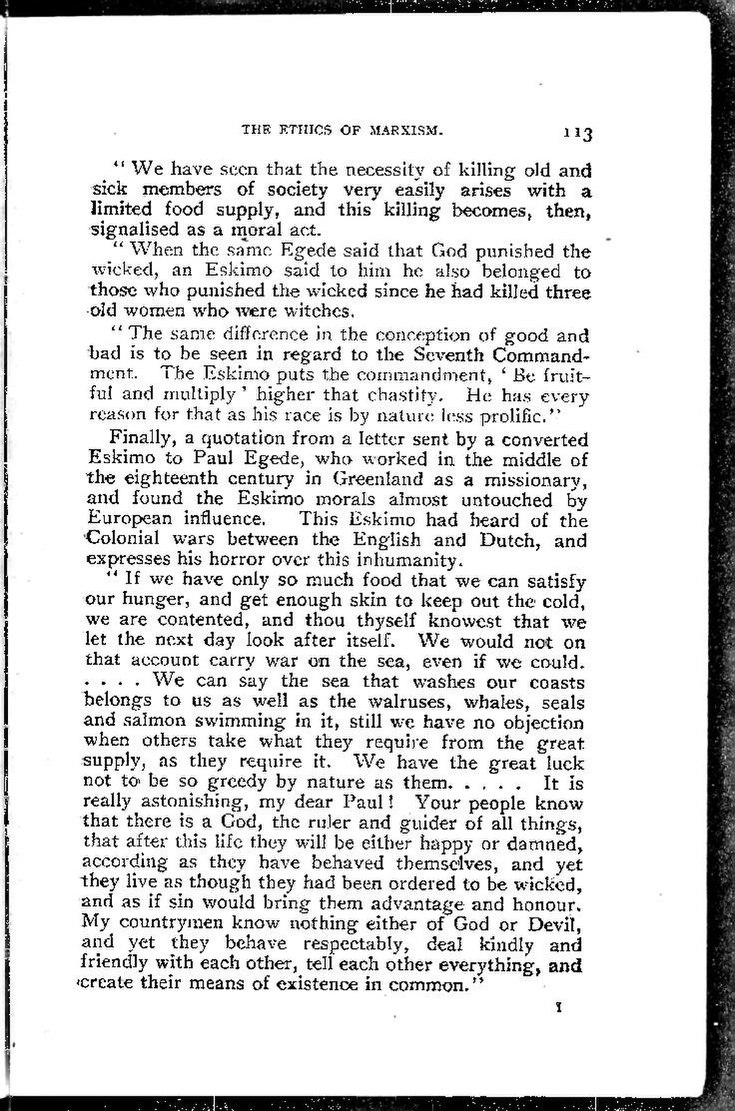"We have seen that the necessity of killing old and sick members of society very easily arises with a limited food supply, and this killing becomes, then, signalised as a moral act.
"When the same Egede said that God punished the wicked, an Eskimo said to him he also belonged to those who punished the wicked since he had killed three old women who were witches.
"The same difference in the conception of good and bad is to be seen in regard to the Seventh Commandment. The Eskimo puts the commandment, 'Be fruitful and multiply' higher that chastity. He has every reason for that as his race is by nature less prolific."
Finally, a quotation from a letter sent by a converted Eskimo to Paul Egede, who worked in the middle of the eighteenth century in Greenland as a missionary, and found the Eskimo morals almost untouched by European influence. This Eskimo had heard of the Colonial wars between the English and Dutch, and expresses his horror over this inhumanity.
"If we have only so much food that we can satisfy our hunger, and get enough skin to keep out the cold, we are contented, and thou thyself knowest that we let the next day look after itself. We would not on that account carry war on the sea, even if we could. …. We can say the sea that washes our coasts belongs to us as well as the walruses, whales, seals and salmon swimming in it, still we have no objection when others take what they require from the great supply, as they require it. We have the great luck not to be so greedy by nature as them. …. It is really astonishing, my dear Paul! Your people know that there is a God, the ruler and guider of all things, that after this life they will be either happy or damned, according as they have behaved themselves, and yet they live as though they had been ordered to be wicked, and as if sin would bring them advantage and honour. My countrymen know nothing either of God or Devil, and yet they behave respectably, deal kindly and friendly with each other, tell each other everything, and create their means of existence in common."
